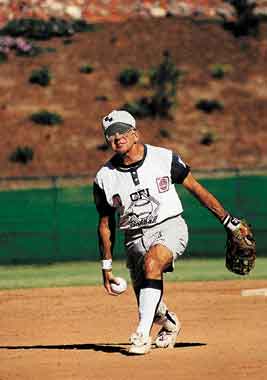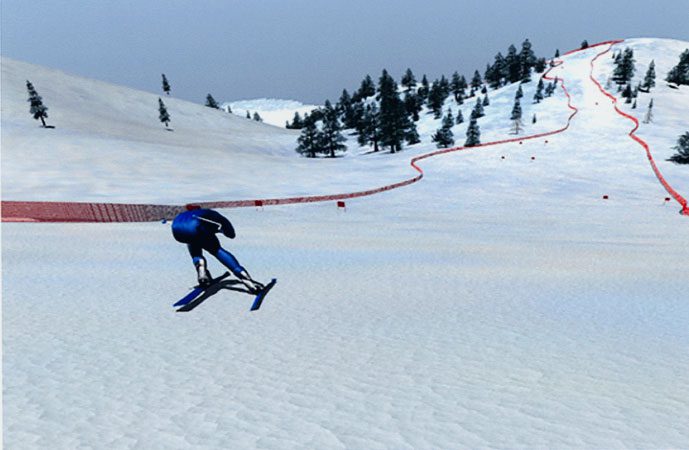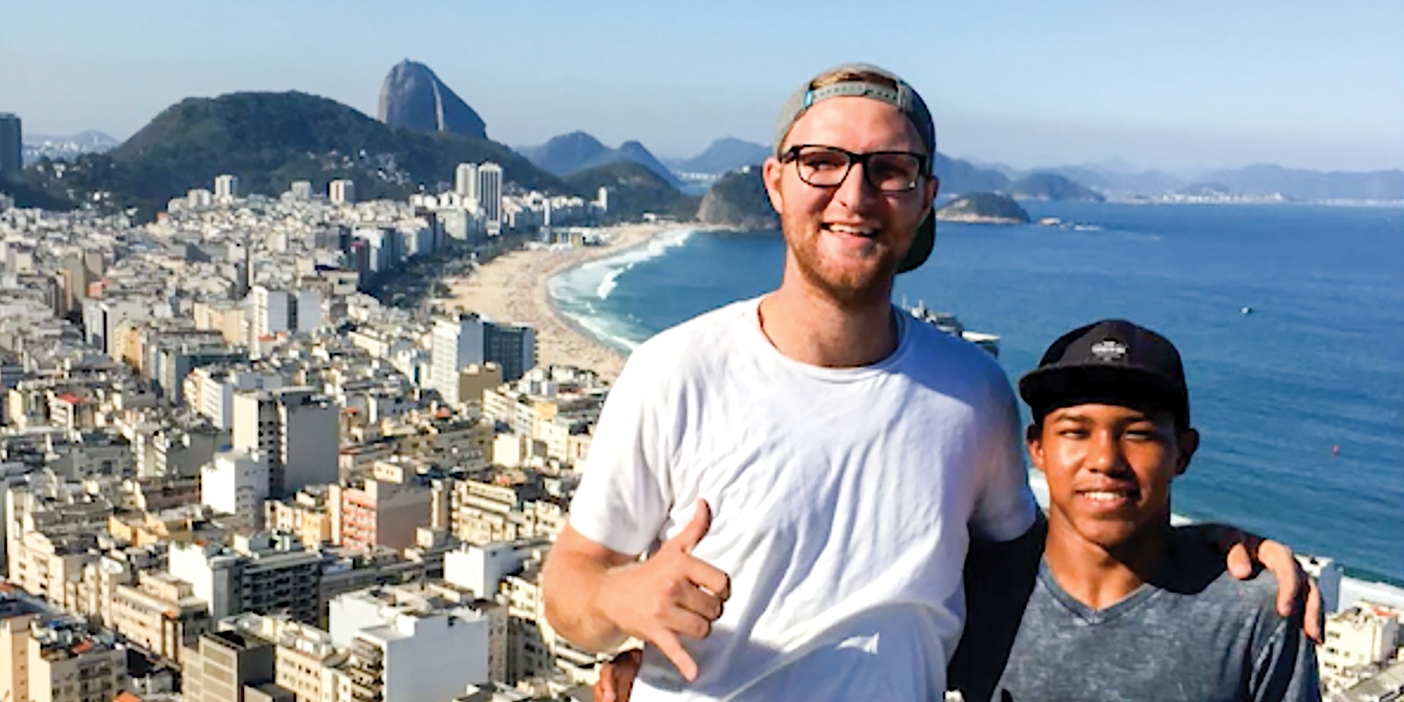By Peter Gardner
Like other long-distance runners, Ivy Granstrom follows a demanding training regimen, is careful about what she eats, and has amassed a hefty collection of medals and trophies. But this Canadian runner differs from most other gold medalists in a couple of significant ways–Ivy is 87 years old and has been blind since an auto accident in 1975. To help her navigate the 3,000-meter course, her husband leads her by a baton as he runs alongside.
Ivy and thousands of other senior athletes come to the red rock of southern Utah each October to compete in the Huntsman World Senior Games. Thanks in part to several BYU professors and scores of BYU student volunteers, the games have developed into what U.S. News and World Report has called the best senior event in the world.
The games were founded in 1987 by St. George businessman John H. Morgan Jr. and are sponsored by Utah entrepreneur Jon M. Huntsman. What began as a small festival with 500 athletes competing in three sports has blossomed into an international attraction featuring 19 sports and 5,000 athletes. In 1998 athletes from all 50 states and 15 foreign countries participated.
“It’s certainly gone beyond my expectations,” says BYU professor of health sciences Steven W. Heiner, a founder of the games. “It’s been a lot more work, but that’s great–that’s what we had in mind.”

Softball is the biggest event of the Huntsman World Senior Games, which draws thousands of athletes. BYU professors and students have been involved with the games since 1987.
Over the years Heiner and other BYU professors have worked to see that the participants do more than win medals. Each year several professors and 40 to 50 student volunteers make the trek to St. George to provide free medical testing for the participants. The testing includes blood pressure and cholesterol readings, hearing tests, mammograms, prostate-specific antigen (PSA) tests, tests for glaucoma and diabetes, body composition analysis, and Alzheimer’s screenings.
Some of the tests have saved lives. In 1993 participant Donald J. Baker decided to be screened for PSA. The reading served as a baseline that, when compared with another test two years later, revealed that Baker had prostate cancer. Because of the screening, doctors were able to detect the cancer in its earliest stages, when it was containable. “I have had no sickness related to this cancer that could have taken my life,” Baker wrote to the games organizers.
Baker is one of 12 people whose lives have been saved as a result of this screening, says Howard R. Gray, a BYU professor of recreation management who helped start the games. Though not all the tests are lifesaving, each gives participants insight about their health.
“Most of those who had hearing problems knew they had them,” says Heather Elwell, a BYU speech-language pathology major and gerontology minor. “They just wanted to see how bad it was.” Elwell has helped with testing at the games for the past two years. She says it is rewarding to help seniors understand their hearing status and what they can do to improve it.
The tests run by BYU students have provided data for various geriatric research projects, some of which have produced startling results.
One study, conducted over the past two years, has identified people with genetic markers for Alzheimer’s disease. “There is an inverse relationship between physical activity and Alzheimer’s,” says Gray, who participates in the Alzheimer’s research. “If someone predisposed to Alzheimer’s will be physically active, they may postpone the inevitable.”
“Our participants are challenging many of the myths of aging,” Gray adds. “We’ve found in some of the measurements, such as blood pressure and cholesterol levels, that some participants are superior to students at BYU.”
Elwell remembers a 92-year-old man who won the five-kilometer road race for his age group. “He started running marathons at the age of 77 when his wife died,” she says. “He was awesome.”
The program also offers lifestyle seminars to help participants maintain and enhance their good health. The lectures feature medical professionals, BYU professors, and sports celebrities who give advice on topics ranging from diet to stress management to golf swings. In recent years special guests have included tracksters Jackie Joyner-Kersey and Florence Griffith-Joyner and 1996 Olympic gold medalist Brad Bridgewater.
Despite all the other perks, it is the competition that brings elderly athletes to St. George from all parts of the globe each October. “They come to win,” Heiner says.
In 1998 the games were a qualifying event for the 1999 U.S. National Senior Olympics in Florida. The biggest event of the games is the softball tournament, which drew 104 teams–1,600 players–in 1998.
After years of involvement with the games, Heiner calls them “a good thing for St. George, a good thing for BYU, and a good thing for seniors.” He says it is important for people to understand how capable seniors are. “One reason I wanted our students to get involved was to see seniors who are upbeat, healthy, and vibrant, living their lives to the fullest.”









